With many more significant statistical categories to draw from, there's bounds to be a big pool of position players in the discussion for the Hall of Fame.
I'm going to list the top 3 career leaders from each category. Anyone who leads in one of these categories, or who places in the top 3 in two of them will get consideration.
Batting Average: Neil Fletcher, Trenidad Beltran, Aaron Stone
On-Base Percentage: Neil Fletcher, Bill Darwin, Trenidad Beltran
Slugging Percentage: Vic Mullins, Matt Shave, Aaron Stone
Hits: Trenidad Beltran, Vic Mullins, George Harding
Doubles: Luis Amaral, Casey Kaline, Ozzie Watson
Triples: Harold Valdes, Ozzie Watson, Casey Kaline
Home Runs: Vic Mullins, Freddie Reynolds, George Harding
Runs: Vic Mullins, George Harding, Ozzie Watson
RBI: Vic Mullins, George Harding, Freddie Reynolds
Stolen Bases: Charlie Magruder, Ozzie Watson, Parker Riggs
Walks: Neil Fletcher, Bill Darwin, Hawk Powell
That leaves our list of candidates as follows
The case for inclusion: Owns three of the top five single-season home run marks. 1st overall in career HR, 5th in career batting average, 1st (by almost .060) in career slugging percentage, 1st (by almost .060) in career OPS, four MVPs, seven straight all-star selections. Four of the top five highest single-season RBI totals. Absolutely dominating in Colorado's run to the season 3 championship. He hit .434 with 9 HR in just 53 AB that postseason, posting an OPS of 1.489. Career postseason OPS of 1.157.
The case against him: Played in Colorado for his whole career, so his numbers are probably a little inflated.
The verdict: You can take 25% off of his HR total to account for the park effect of Coors, and he's still in the Hall easily. One of only a handful of truly, absolutely dominating players to sustain their excellence over the life of the league. He stands at 483 HR right now with just over a season left on his current contract. He's likely to reach 500 next year, and may hit 550 or 600 before retiring.
The case for inclusion: Owns the Ryan World record with an absurd 84 HR in season 6. Second on the career HR list with 426 right now. Oh, by the way, he's only 26. #3 in career RBI. Did I mention he's only 26? Career OPS over 1.000. Career postseason OPS of 1.481 in 13 games.
The case against him: Other than a lack of a ring, there's not a particularly compelling case against him to be made. Has been totally, totally dominant so far and probably has at least 10 good years left in him.
The verdict: Sure, something could go wrong... an injury, a trade to a team that demotes him for some ridiculous reason... but right now, it's almost impossible to come up with a reason he wouldn't make it. With his health rating (96), durability (97) and age (26), it's not out of the question that he could hit 1,000 HR before he retires.
The case for inclusion: #2 in career OPS from a traditionally power-poor position, #1 in career walks, #1 in OBP (.497 entering this season). Owns all five spots in the top-5 best OBP seasons in Ryan World history. Six all-star teams, six Silver Slugger awards, an MVP and a ring (Season 5 with the Burros). Totally dominant in the postseason 1.161 in 32 career games. Posted a .549 OBP (on base in 55% of his plate appearances!) in Burros' championship season.
The case against him: Had the misfortune of getting traded to Toledo, where his career promptly nose-dived off a cliff. Sat for half a year and started falling apart thanks to lousy training and inconsistent play. Only played in 89 games in season 7 despite being healthy. That sent his overall rating plunging 11 points in one year. Still signed for three more seasons, making it likely that his overall career stats will suffer.
The verdict: If he retired today, he would be a nearly automatic Hall Of Famer. Perhaps unfairly, there's a possibility that he could slide out of that realm in the next few years. Hopefully he can post decent enough numbers to avoid that.
The case for inclusion: #3 in career OBP, #5 in career OPS, #1 in career hits, #4 in career doubles. Has never posted on OBP below .400. Only one season with an OPS under 1.000. At least 110 RBI in every season (has 99 so far this year). Incredible 1.243 postseason OPS in run to Burros' season one championship. Still very close to peak ratings at the age of 32.
The case against him: Home run totals have slid recently (43 in season 6, 39 in season 7, only 23 in season 8).
The verdict: Probably pretty close right now. He's got three more seasons on his contract, and his candidacy could hinge on how those three seasons go. If he stays in Colorado, the park could help him put up big enough numbers to get in comfortably. If he goes somewhere and has a Neil Fletcher-like career path, he could be left out.
The case for inclusion: #3 in career slugging percentage, #3 in career batting average. Won a ring during season 3 with Colorado.
The case against him: Posted his most impressive numbers during his years in Colorado, and suffered a noticeable dropoff when he went to New York. Below-average defensively. So-so in the postseason (.840 OPS, even with most games coming with Colorado).
The verdict: At the age of 32, and with a health rating in the 50s, he's not likely to enjoy a long run in the future. His career numbers (.418 OBP, .674 SLG, 263 walks, 221 HR) are good, but are either slightly better or far worse than his contemporary Neil Fletcher, despite playing in a dramatic hitters' park while Fletcher played mostly in pitchers' parks. There are a lot of Colorado guys on this list-- that's not a coincidence. The park plays a big role in their numbers, so guys would really have to put up overwhelming numbers to be surefire Hall Of Famers there. It's certainly possible that he will sneak in, but even during his top years Stone was never the big feared bat on Colorado's team. Odds are he'll miss out.
The case for inclusion: Places #3 in career hits, #3 in home runs, #2 in runs, #2 in RBI. Six all-star games, two Gold Gloves, five Silver Sluggers.
The case against him: Appears to be something of a Coors Field product. His numbers since being traded to Cincinnati are exceptionally average. He had never posted a season OPS under 1.000 through seven seasons in Colorado, but sits at .759 in Cincinnati right now. Home run total has plunged from 45 to 15 in just one year. For his numbers to have dropped so dramatically so suddenly without a similar age or injury-related drop in ratings is quite damning.
The verdict: He's got another year on his deal to turn things around. If he has another .800 OPS, 20 HR year in Cincinnati, he should probably be dismissed as a product of Coors Field.
The case for inclusion: #1 in career stolen bases. Swiped 326 bases while only being caught 19 times.
The case against him: Sucked at everything else (.312 career OBP, .688 career OPS)
The verdict: Not even close. And stolen bases are way out of whack.
The case for inclusion: #2 in career stolen bases, #3 in doubles, #2 in triples, #3 in runs. Four all-star teams, 2 Silver Sluggers.
The case against him: Started his career with two very good seasons, but turned to just above average after that.
The verdict: Nope.
The case for inclusion: Ryan World-record 39-game hitting streak, #1 in doubles, #4 in triples. Solid postseason player, with .982 OPS in 33 career games.
The case against him: Consistently very good, never great. Has never put together a "signature season." Never had a 1.000 OPS, never hit more than 23 HR, never had 200 hits, never had 50 SB. No ring.
The verdict: Consistently very good is very good... but it won't get you to the Hall.
The case for inclusion: #1 in triples. 210 HR and .989 OPS are both very strong for a 2B. First five seasons were outstanding. 2 All-Star appearances, 2 Silver Sluggers.
The case against him: 60 of his 91 career triples came in the first two seasons before WIS corrected the "triples glitch" so they come with a major asterisk. So-so postseason performance (.777 OPS in 15 games). Sliding downhill fast. Dropped 7 OVR points since the start of last season and 15 points from his peak.
The verdict: Actually a lot closer than it might have appeared at first glance. His stats from his first five seasons are outstanding. However, since then (except for 1/3 season spent swinging at the short porch at Yankee Stadium) he's been very average. Only having 2 All-Star appearances is fairly damaging as well. He's close, but probably a no.
The case for inclusion: #2 in OBP, #2 in walks. Career OPS over 1.000, almost certain to pass 300 HR next season, and at only 32, he should end up with between 350 and 400 before he's done. Career OBP of .450. Has been a consistent 30 HR threat with 34+ in each of first 7 seasons. OPS over 1.000 in each of first 7 seasons. All-Star appearances and 1 Silver Slugger. Solid postseason performer with a .909 OPS in 62 games. Posted a 1.028 OPS and 9 HR in Burros' run to season one title and .902 OPS in Burros' season 5 championship. Put up 1.288 OPS for Bombers in season 7 playoffs.
The case against him: Only two all-star appearances, below-average 1B.
The verdict: Again, pretty close. He's got a John Olerud eye with Todd Helton power, minus the asterisk for park-aided stats. If he can play for another 3-4 years and continue to put up 25+ HR and OPS numbers over .925, he would have my vote, but I'm biased. When his time comes, I wouldn't really be surprised either way.
It's probably too early to tell for guys like David Seanez, Matt Shave and maybe even Albert Frazier. They'll at least merit some discussion once we have a few seasons out of each of them.
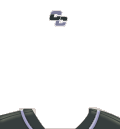
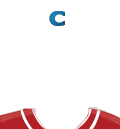

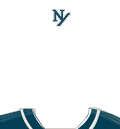
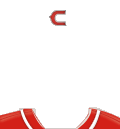

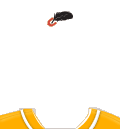
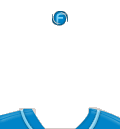
No comments:
Post a Comment